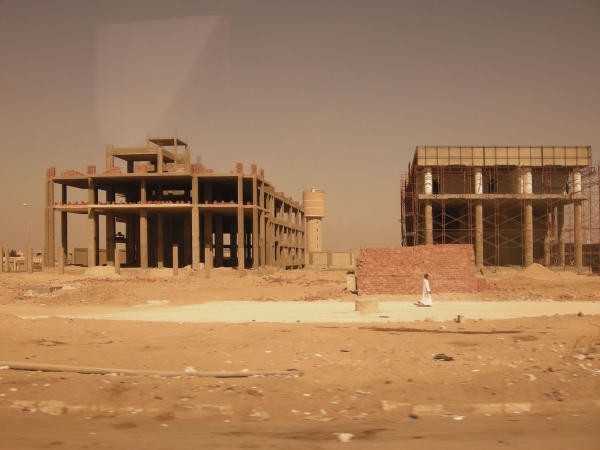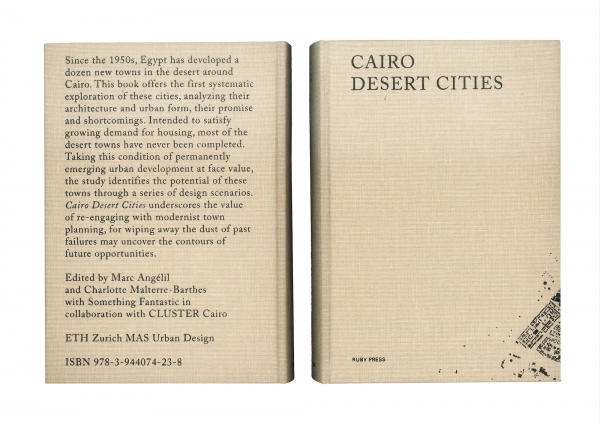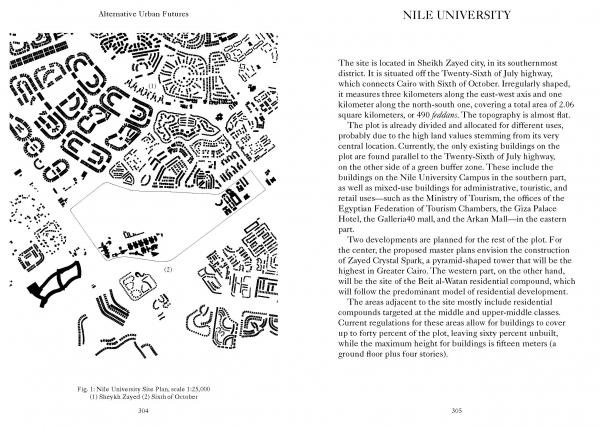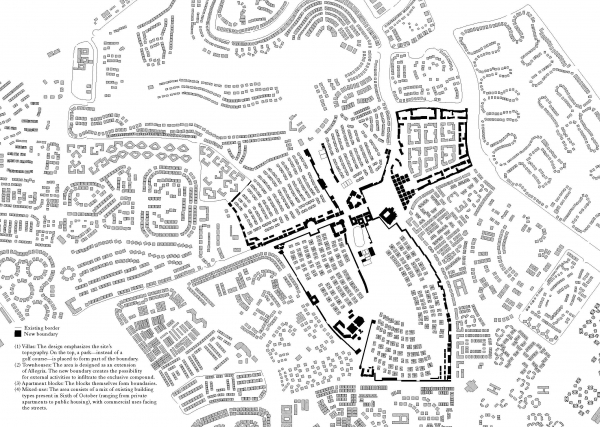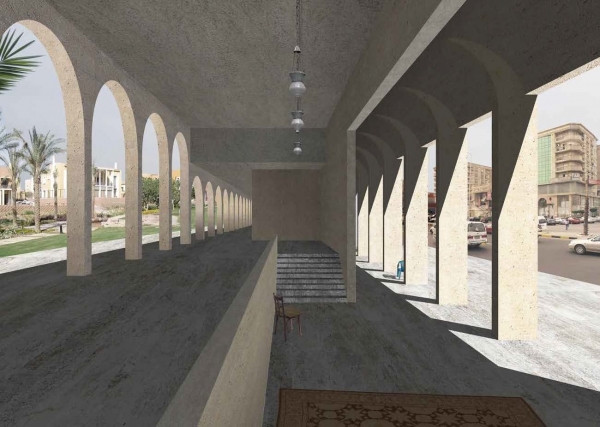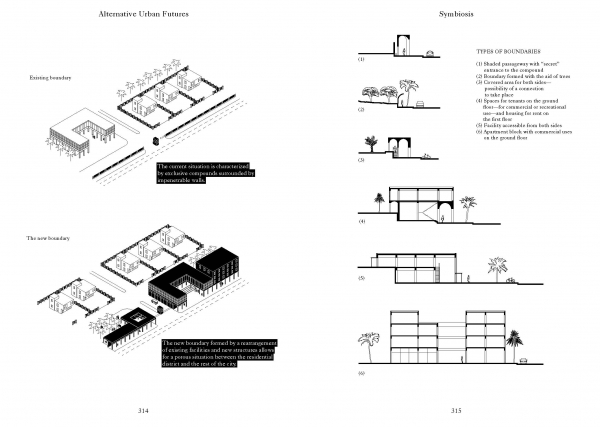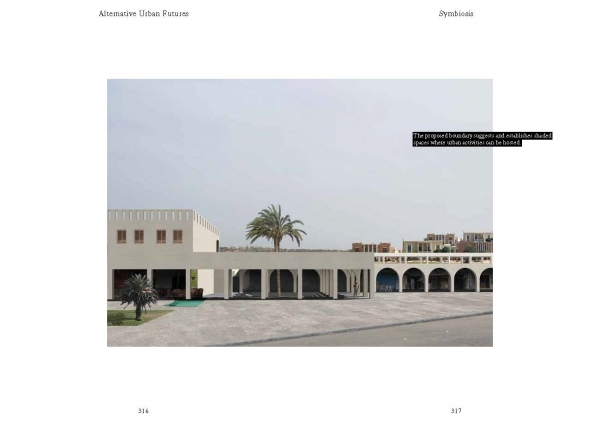Research + Teaching
Cairo Desert Cities
ETHZ MAS Urban Design: Cycle Egypt, 2014-2016
In the desert lands around Cairo, new cities flourished, presented since 1950 as the solution to the country’s problems. In the name of a modern Egypt, colossal expenditures and resources were spent, yet to show success. Huge tracks of land have been built, benefiting a small portion of the population, and producing largely uninhabited cities. Sixth of October is a paradigmatic case where modernist urban planning, economic liberalization and crony capitalism meet and overlap, for an unfortunate result. Paradoxically, it is also considered to be one of Egypt’s more successful new towns. Questioning the situation of Sixth of October and of Desert Cities in general, this studio looks into alternative modes of planning and urbanization. Housing demand is still thriving, as Egyptians seek safe investment for their savings, and political powers are responsive and willing to pursue the urban development of desert lands, as the announcement of a New Capital proved. Thus, one can assume that desert cities and urban developments will keep on being built. This is currently done in a largely unsustainable, poorly designed and socially segregated manner that produces an urban environment of questionable quality. The studio looked to define alternative urban trajectories for the desert city of Sixth of October.
The outcome of this work has been published in “Cairo Desert Cities” edited by Marc Angélil and Charlotte Malterre-Barthes in collaboration with Something Fantastic and CLUSTER, (Berlin: Ruby Press, 2017).
After exploring the so-called informal districts of the Egyptian capital in its publication Housing Cairo: The Informal Response (Ruby Press, 2016), the ETH Zurich Master of Urban Design program investigated the phenomenon of new desert cities. Findings of this research project have been compiled in the publication Cairo’s Desert Cities, presenting these cities, their failure and relative success, and the urban conditions that have emerged. Critical of these conditions, alternative projects are proposed for the paradigmatic case of ‹6th of October City›. With the intention to launch a critical conversation on the future development of desert cities, the following question is asked: If urban development in the desert is indispensable, how could such cities be designed in a more sustainable way?
2014-2016, Director, in collaboration with Something Fantastic and CLUSTER Cairo.
Teaching Assistants: Nina Cattaneo, Roxanne de Raeymaeker, Lukas Graf, Sara Sherif.
The outcome of this work has been published in “Cairo Desert Cities” edited by Marc Angélil and Charlotte Malterre-Barthes in collaboration with Something Fantastic and CLUSTER, (Berlin: Ruby Press, 2017).
An Urban Design for 6th of October, ‘Symbiosis: Duplicitous Bounadries for Spatial Inclusivity (Christina Lazou, Sofia Symeonidou, Shinji Terada)
